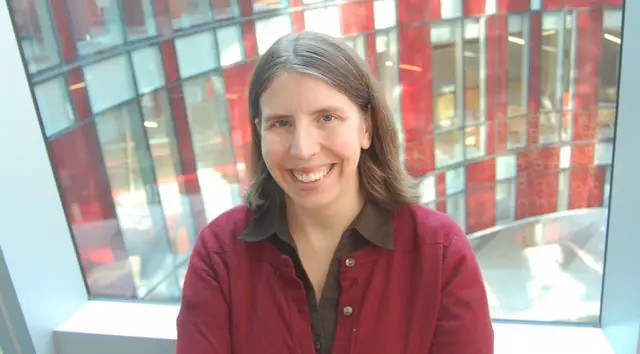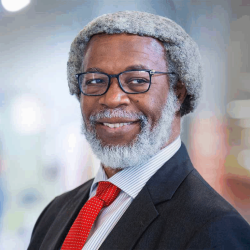University of Maryland Appoints Renowned Physicist to Lead Quantum Research and Education
The University of Maryland has named Gretchen Campbell, an internationally recognized researcher and national leader in advancing the field of quantum science, as associate vice president for quantum research and education, effective July 13, 2025.

In this newly established position, Campbell will collaborate with faculty, students and campus partners to further UMD's prominence in quantum science and technology. Her position will focus on shaping UMD’s strategic vision for quantum research; advancing Gov. Wes Moore’s vision for transforming the state and region into the global Capital of Quantum; expanding quantum curricula for K-12 through graduate programs; and forging strategic partnerships that position Maryland at the forefront of quantum research, education and innovation.
"Dr. Campbell brings an exceptional combination of scientific expertise, national leadership and deep experience in building partnerships across academia, government and industry," said Senior Vice President and Provost Jennifer King Rice. "Her leadership will be instrumental in advancing Maryland’s bold vision for quantum research and education, and strengthening our position as a global hub for quantum innovation."
Campbell’s appointment comes on the heels of two recent major developments that helped solidify UMD as a global leader in quantum science and technology: the launch of the $1 billion “Capital of Quantum” initiative announced by Gov. Moore and the establishment of the Capital Quantum Benchmarking Hub to be located at the university’s Applied Research Laboratory for Intelligence and Security. These initiatives reinforce UMD's status as a world leader in quantum, building on more than 35 years of pioneering research, key collaborations and a commitment to education and economic development.
“The University of Maryland boasts a remarkable legacy in leading quantum exploration, and now is the pivotal moment to amplify our role in this rapidly expanding field and cultivate a quantum-ready workforce,” said Vice President for Research Patrick O’Shea. “With Dr. Campbell at the helm, I am absolutely confident that we will not only achieve our ambitious goals but also soar to new heights.”
Campbell assumes this new role in the Division of Research following a detail assignment to the White House Office of Science and Technology Policy (OSTP), where she most recently served as assistant director for quantum information science and director of the National Quantum Coordination Office. In that position, she coordinated federal quantum efforts across government, industry and academia and co-chaired the National Quantum Initiative Advisory Committee, providing insight and recommendations to the President, Congress and the National Science and Technology Council.
In addition to her work with OSTP, Campbell held multiple leadership roles at the National Institute of Standards and Technology (NIST), where she led the Laser Cooling and Trapping Group in the Quantum Measurement Division. From 2016 to 2025, she was co-director of the Joint Quantum Institute, a partnership between UMD, NIST and the Laboratory for Physical Sciences, and she has been an adjunct professor in UMD's Department of Physics since 2009.
“I’ve been fortunate to be part of Maryland’s quantum community for many years,” Campbell said. “Stepping into this new role, I’m excited to help build on that foundation and continue advancing our leadership alongside our outstanding faculty, students and partners.”
A pioneering experimental physicist, Campbell’s research includes work on Bose-Einstein condensates, ultra-precise atomic clocks and the creation of the first atomtronic circuits. She is a Fellow of the American Physical Society and the recipient of numerous honors, including the Presidential Early Career Award in Science and Engineering, the Arthur Flemming Award that honors outstanding federal employees, the Maria Goeppert Mayer Award from the American Physical Society and the International Union of Pure and Applied Physics’ Young Scientist Prize.
Campbell earned her Ph.D. from the Massachusetts Institute of Technology and her undergraduate degree from Wellesley College.







